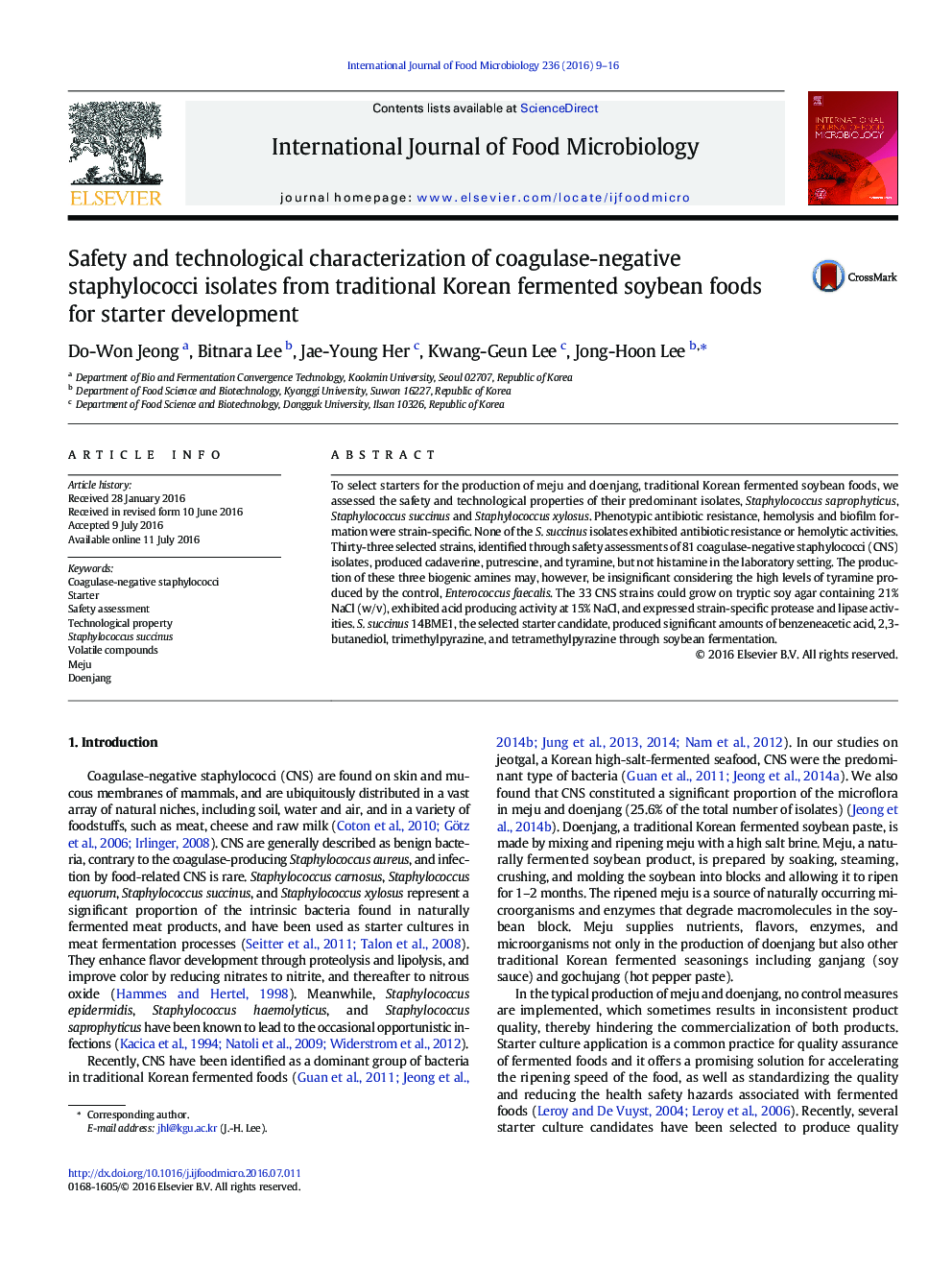| Article ID | Journal | Published Year | Pages | File Type |
|---|---|---|---|---|
| 4366238 | International Journal of Food Microbiology | 2016 | 8 Pages |
•Coagulase-negative staphylococci predominate in Korean fermented soybean foods.•Their safety and technological properties were found to be strain-specific.•Biogenic amine production was deeply linked with its specific determinant.•Acid production occurred at a concentration of 15% NaCl.•A starter candidate contributed to produce flavor compounds by soybean fermentation.
To select starters for the production of meju and doenjang, traditional Korean fermented soybean foods, we assessed the safety and technological properties of their predominant isolates, Staphylococcus saprophyticus, Staphylococcus succinus and Staphylococcus xylosus. Phenotypic antibiotic resistance, hemolysis and biofilm formation were strain-specific. None of the S. succinus isolates exhibited antibiotic resistance or hemolytic activities. Thirty-three selected strains, identified through safety assessments of 81 coagulase-negative staphylococci (CNS) isolates, produced cadaverine, putrescine, and tyramine, but not histamine in the laboratory setting. The production of these three biogenic amines may, however, be insignificant considering the high levels of tyramine produced by the control, Enterococcus faecalis. The 33 CNS strains could grow on tryptic soy agar containing 21% NaCl (w/v), exhibited acid producing activity at 15% NaCl, and expressed strain-specific protease and lipase activities. S. succinus 14BME1, the selected starter candidate, produced significant amounts of benzeneacetic acid, 2,3-butanediol, trimethylpyrazine, and tetramethylpyrazine through soybean fermentation.
